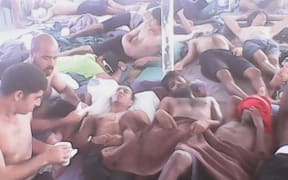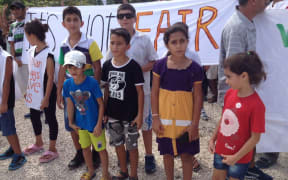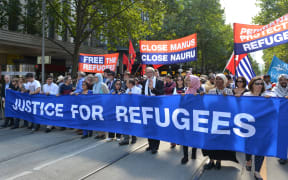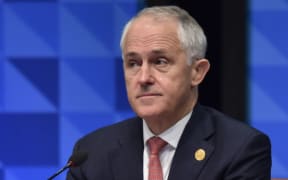The future remains uncertain for asylum seekers and refugees held on Papua New Guinea's Manus Island, despite Canberra agreeing to close the offshore processing centre there.
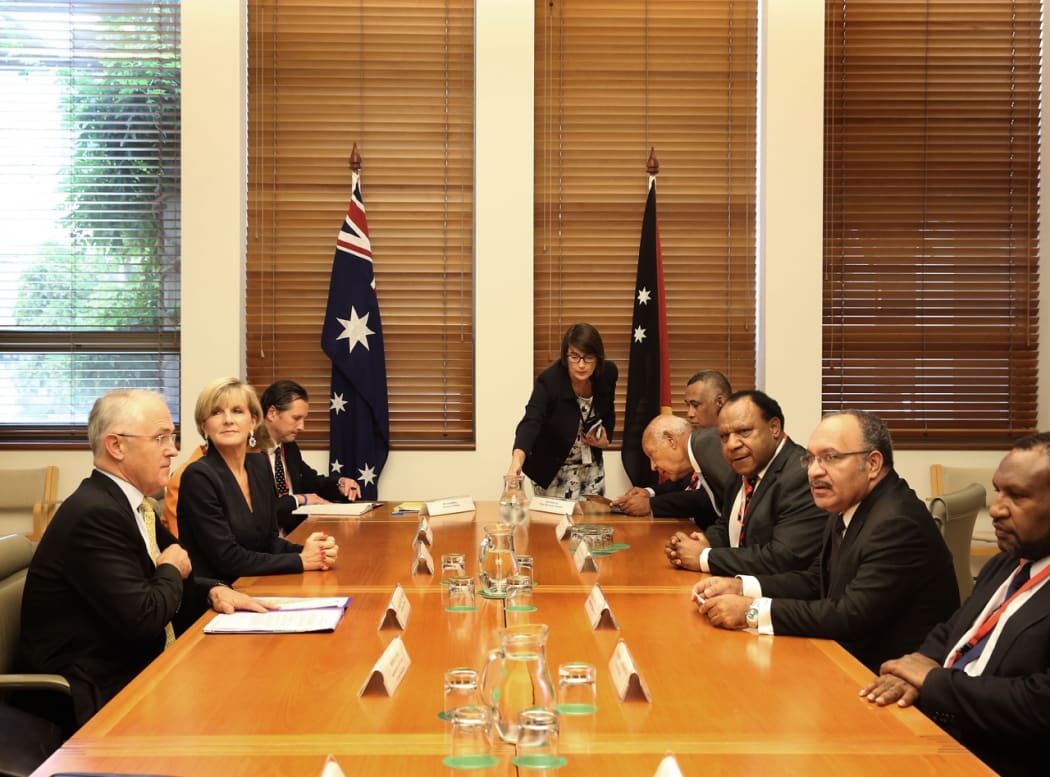
Australian Prime Minister Malcolm Turnbull and his cabinet colleagues (left side of table) meet with his PNG counterpart Peter O'Neill and members of his National Executive Council. Photo: Supplied
Australia's Immigration Minister, Peter Dutton, met with PNG Prime Minister Peter O'Neill yesterday in Port Moresby, following which both issued statements to the effect that Manus was going to be closed.
In April, PNG's Supreme Court ruled that holding people against their will on Manus was illegal, and ordered the closure of the Manus centre where about 900 men have been forcibly transferred by Australia since 2013.
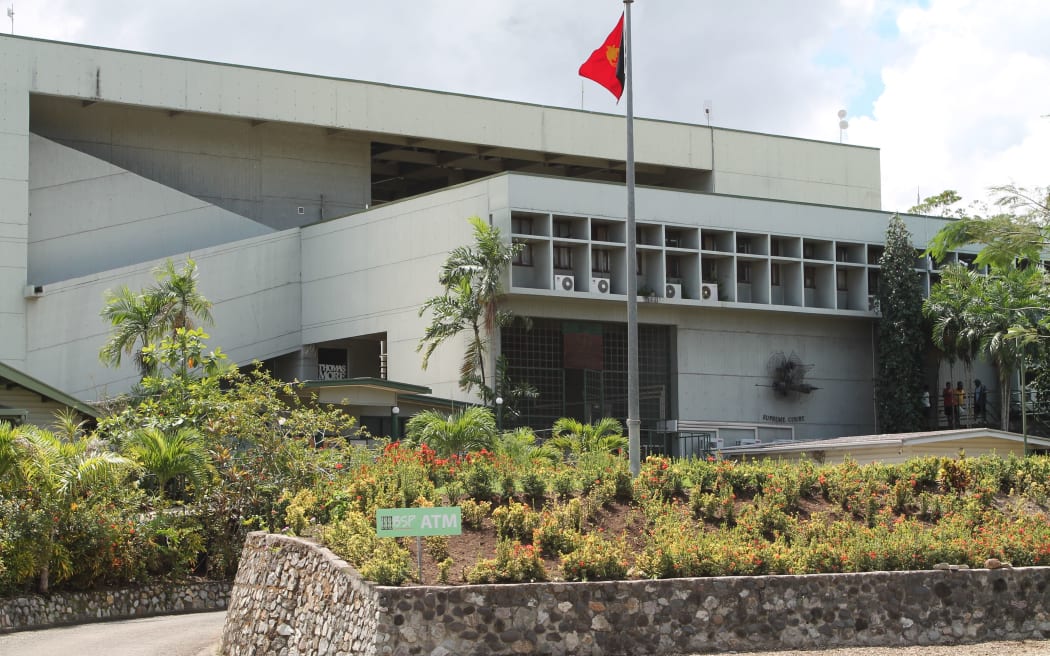
The Papua New Guinea Supreme Court. Photo: RNZ / Johnny Blades
Following the ruling, Mr O'Neill immediately said the Manus centre would be closed, but Australia's government had distanced itself from responsibility over the centre.
However, following signs of frustration by PNG Chief Justice Sir Salamo Injia that the governments were not complying with April's ruling and amidongoing reports of human rights abuses, pressure has grown for the centre to be closed.
"Both Papua New Guinea and Australia are in agreement that the centre is to be closed," said Mr O'Neill in a statement, adding that a series of options were being considered.
"It is important that this process is not rushed but carried out in a careful manner.
"This must take into account the interests of the people of PNG and the well-being of asylum seekers and refugees."
Mr Dutton said his government would help PNG with the closure, but has given no timeline.
"I'm not going to go into the timeline because this is an issue for PNG," he told Australian media.
"The detention centre there is part of PNG sovereign territory and we'll work with the PNG government to provide assistance and we'll work towards closure as quickly as possible."
Humans
The men held on Manus, like those asylum seekers taken to the camps on Nauru, have fled from countries such as Iraq, Iran, Afghanistan and Pakistan.
Of those who have been processed to date, the vast majority have been found to be genuine refugees.
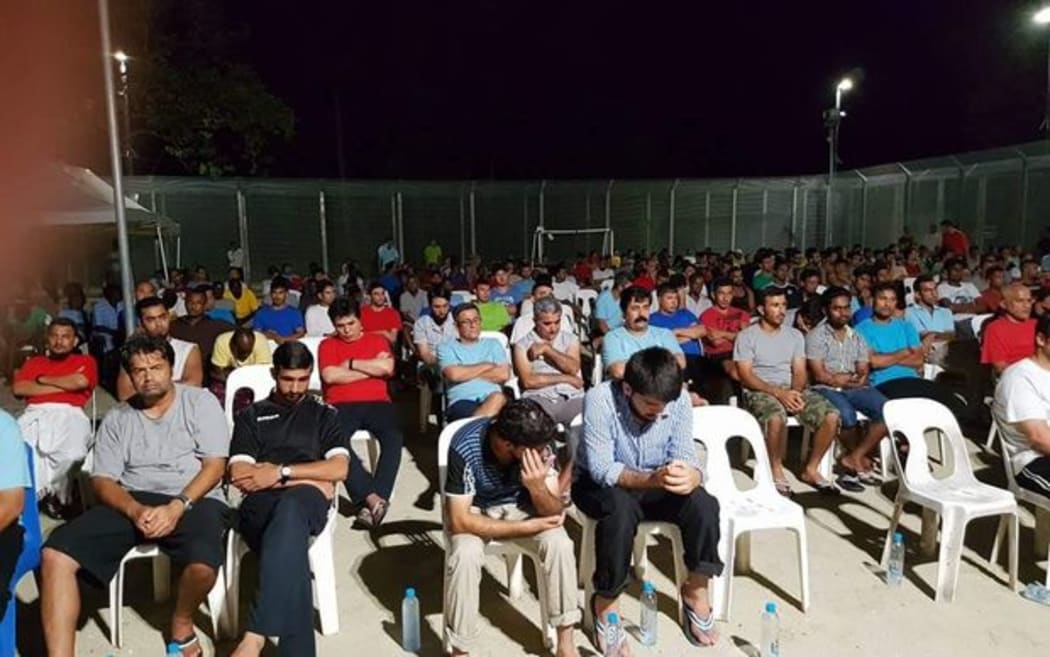
Hundreds gather for memorial service for Pakistani refugee who drowned. Photo: Refugee Action Coalition
One refugee on Manus, the Kurdish-Iranian journalist Behrouz Boochani, said the uncertainties about where they will end up, and the long, torturous processing of their asylum claims by PNG Immigration, have taken a toll on everyone in the centre.
He described Manus as a prison where he and the other detainees are routinely mistreated and dehumanised.
"The prisoners ... have become too weak and too obedient to confront this system that has stripped them of all human dignity."
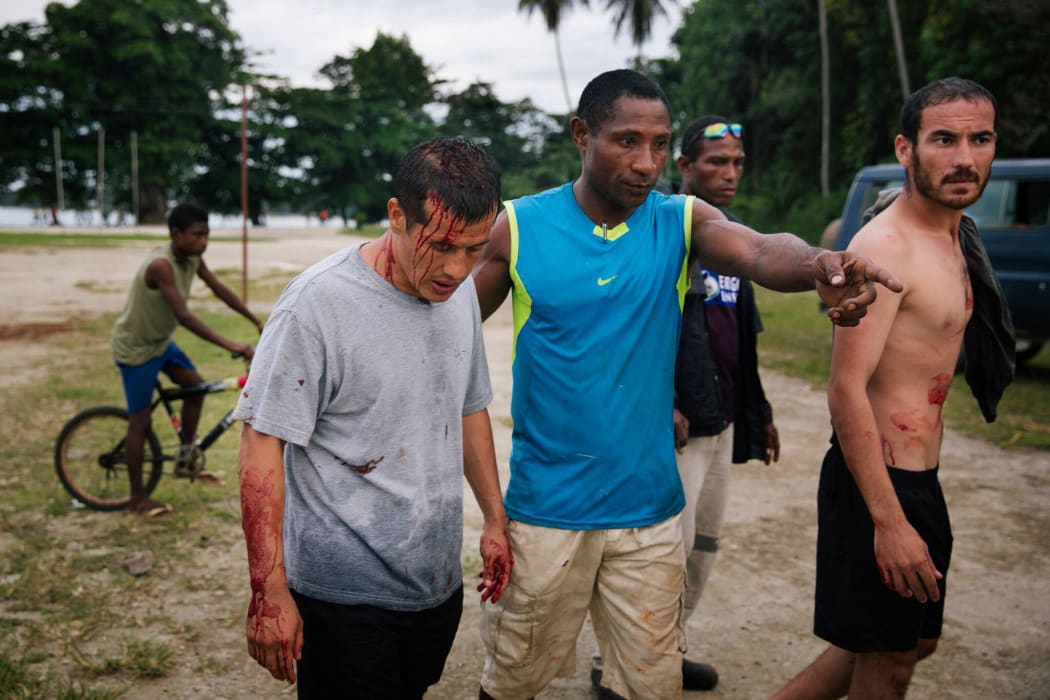
In this handout picture taken on August 10, 2016 and released on August 15 by GETUP, two injured Afghan refugees (R and 2nd L) from the Manus Island detention centre are being helped after allegedly being attacked by a group of Papua New Guinean men whilst out on a day release. Photo: Matthew Abbott / GETUP / AFP
Taken against their will by Australia to Manus, these people are often seen as "illegals" in Australia.
The Australian human rights lawyer Julian Burnside QC thinks mainstream opinion in Australia is still in favour of the hard line taken on boat people.
The reason for this, he suggested, was that people have been misled by politicians and the Rupert Murdoch-dominated press in the country.
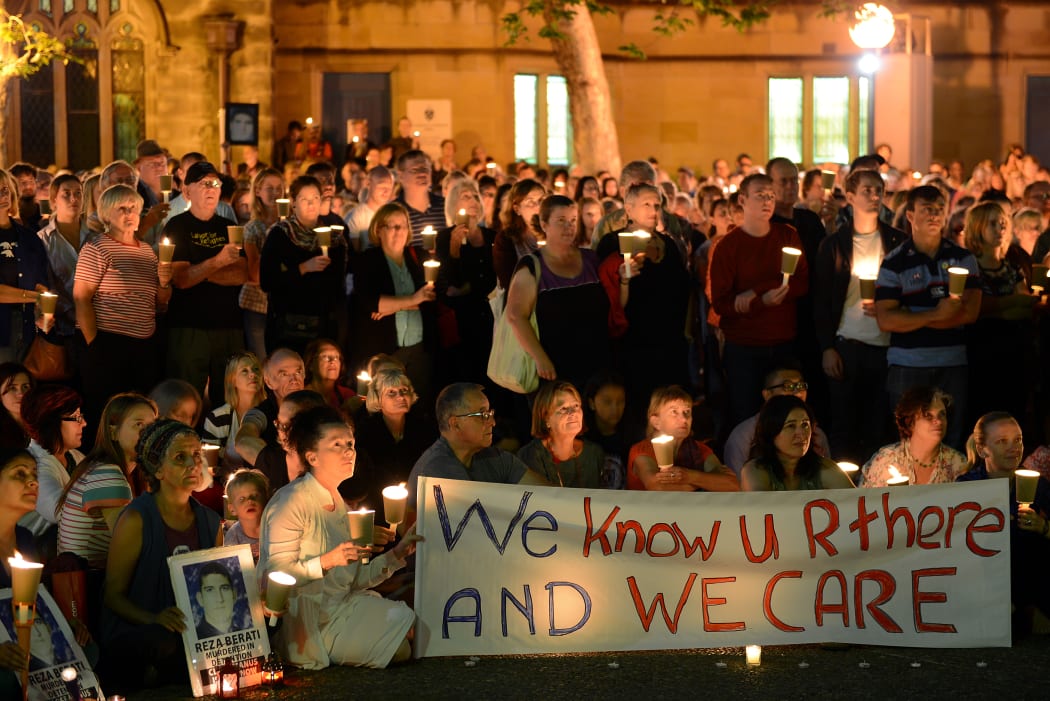
People attend a candlelight vigil in support of asylum seekers, in Sydney on February 23, 2014. Photo: AFP/Muhammad Farooq
"What the Australian coalition party's done in the last 15 years is tag boat people as illegal, which is false because they don't commit any offence by coming the way they do, seeking asylum," he said.
"And they've dressed up the whole operation as border protection, which is nonsense. We don't need to be protected from people who are simply looking for a place to be safe."
The Manus deal signed in 2013 between Australia's prime minister Kevin Rudd and Peter O'Neill was billed as ensuring none of the asylum seekers would end up in Australia, that those found to be refugees would resettle in PNG or a third country.
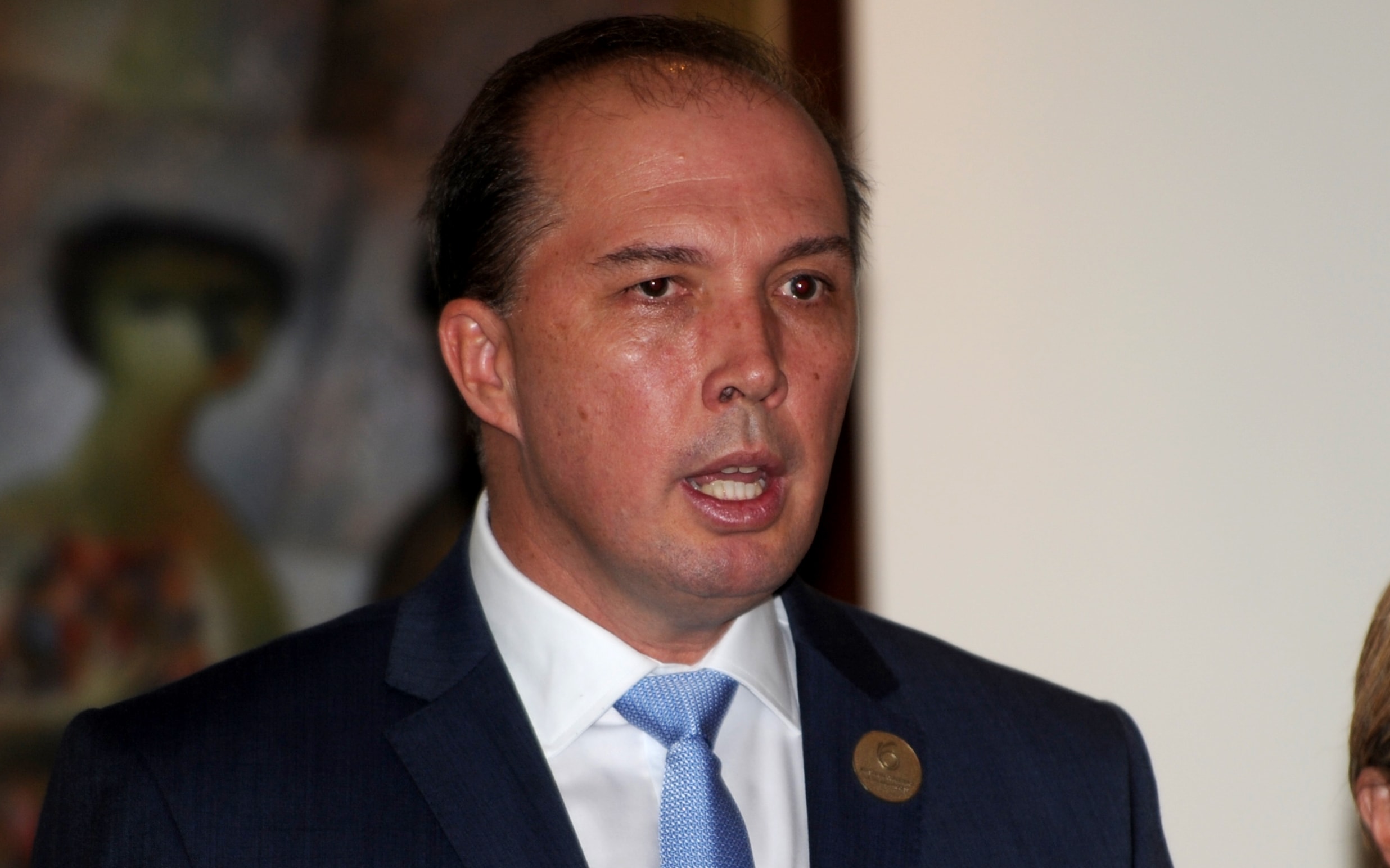
Australian immigration mininster, Peter Dutton, says people do have a motivation to make a false complaint. Photo: AFP/Sonny Tumbelaka
The refugees have indicated they do not want to be resettled in PNG which lacks a reputable resettlement policy - the handful of refugees who PNG Immigration left for integration into local communities have had a torrid time.
PNG officials have suggested that a number of those on Manus will be deported back to their home country.
This is bound to be problematic.
Grant Bayldon from Amnesty International New Zealand said while he welcomed the sign that Manus would be closed, the extensive suffering that caused asylum seekers to flee their home countries, and their painful plight since, must be taken into account.
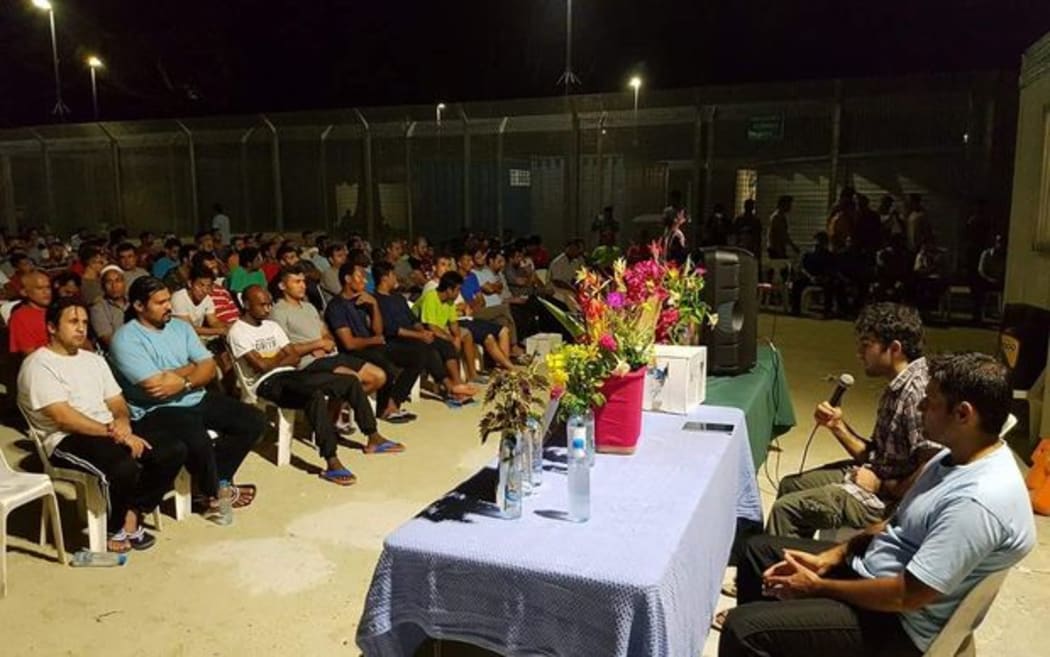
Hundreds gather for memorial service for Pakistani refugee who drowned. Photo: Supplied
He was concerned about the lack of a timeline on the Manus closure, and was hoping for some accountability from Canberra.
"What we've seen from Australia is still no acknowledgement that its programme is illegal and that it's been a human rights disaster; that it has deliberately abused and inflicted cruelty on people who have just been looking for safety," he said.
"So really, we need to know from the Australian government what will happen to the people on Manus now, and what we're saying to them is those people need to be safely resettled in Australia."
Ball in Canberra's court
The announcement about the closure of the Manus detention centre came as hundreds of Australian academics called for a national summit on the nation's asylum seeker policies.
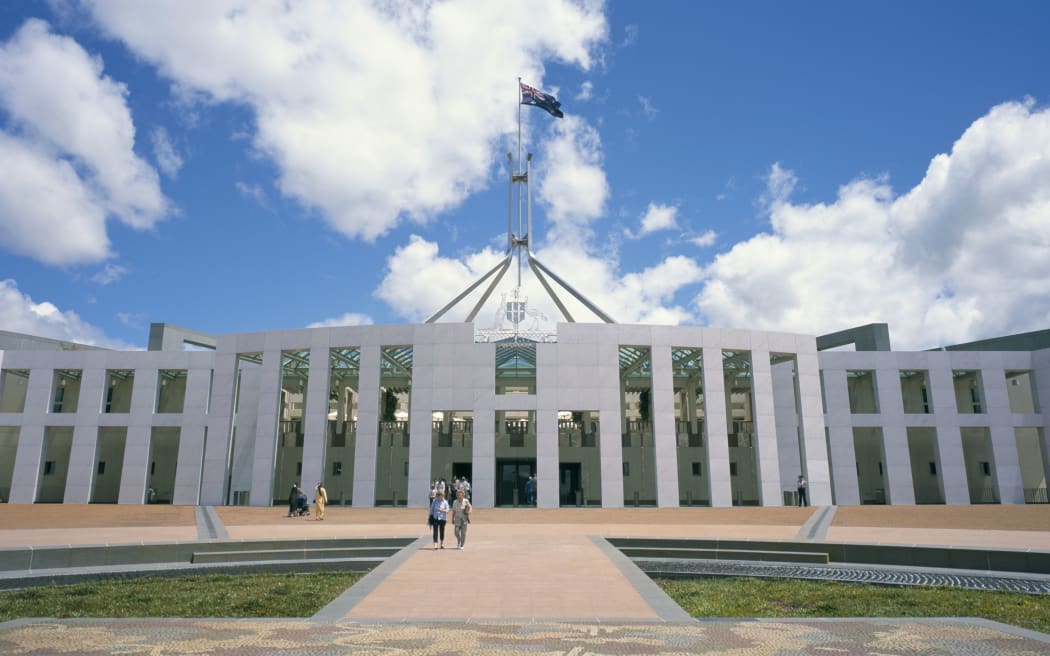
Australia's Parliament buildings, in Canberra. Photo: AFP
Swinburne University Human Rights Professor Linda Briskman said Canberra's hardline policy on "boat people" was not sustainable, and felt there were possible cracks emerging in Australia's policy of offshore processing.
"The problem is that there is no detail," she noted. "What is going to happen to the men who are on Manus now? Are the plans to still resettle them in PNG and how is that going to be rolled out?"
"Or is the plan to still try and convince other countries to take people from Manus Island, something that has been quite unsuccessful on previous attempts."
Peter Dutton has reiterated that none of the refugees will be resettled in Australia - he and his prime minister Malcolm Turnbull have been determined not to provide incentives for people smugglers to bring more boat people.
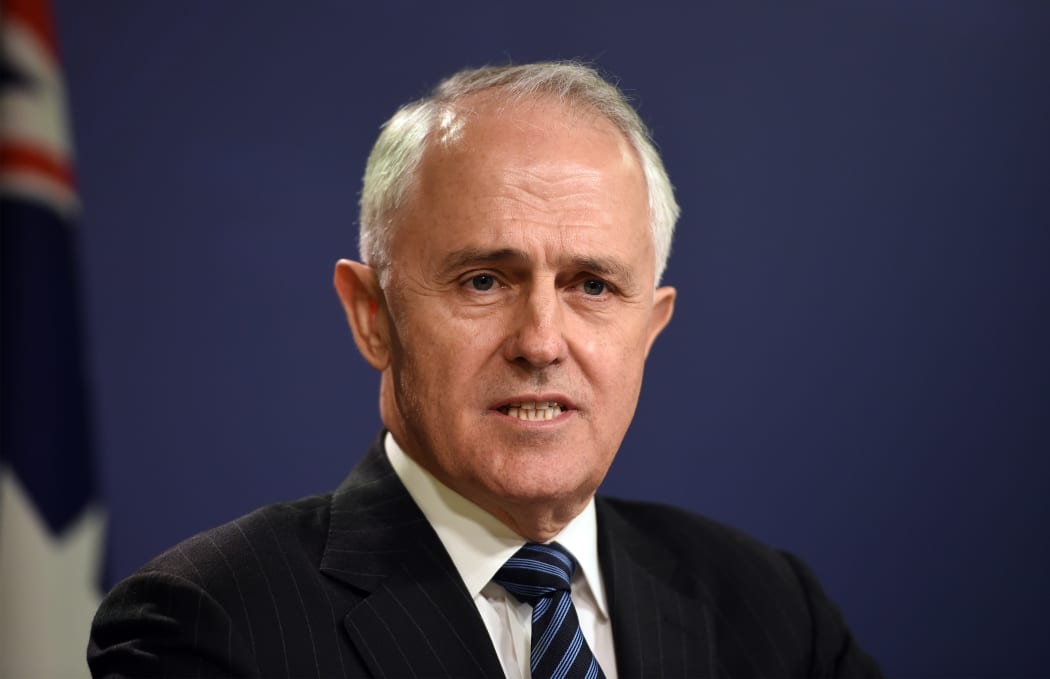
Australia's Prime Minister Malcolm Turnbull at a recent press conference in Sydney. Photo: SAEED KHAN / AFP
The human rights lawyer Julian Burnside QC said that people smugglers only have business because there are people who are desperate to find a safe place to live.
"And of course in Australia, our boat people problem, so-called, is miniscule. We get very small numbers and I think most other countries will look at us and say, what, you really want us to resettle these people for you? Poor tiny, crowded Australia, you know, it's ridiculous.
Earlier this year, a New Zealand offer to take 150 refugees from Australia's offshore centres was rebuffed by Canberra.
New Zealand's Prime Minister John Key said today that the offer remained on the table.
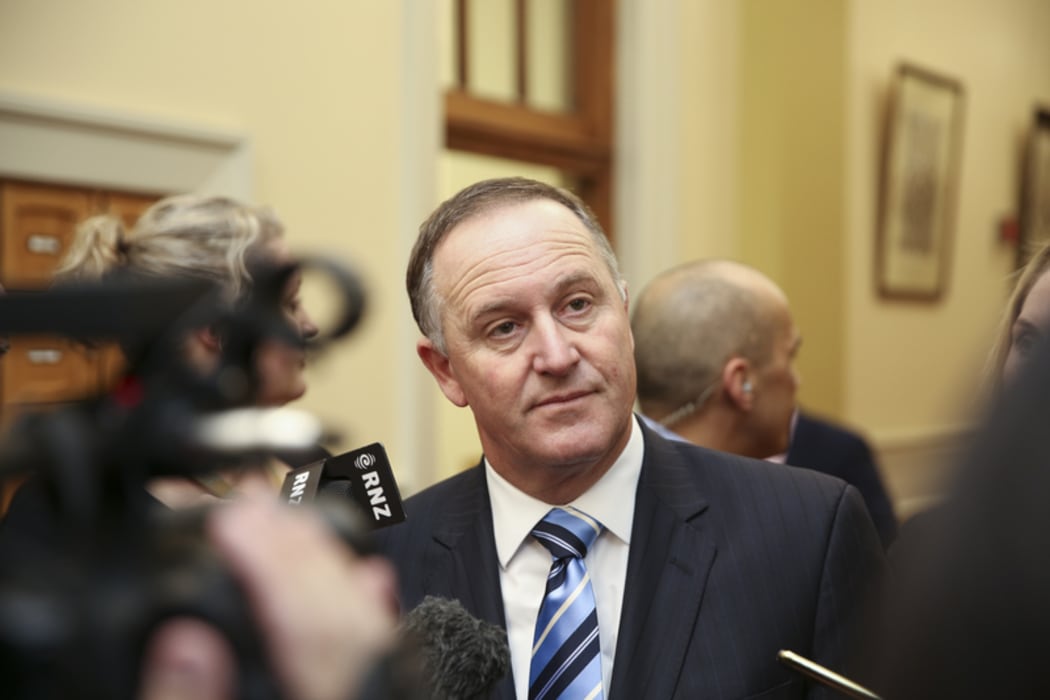
Photo: RNZ / Rebekah Parsons-King
"The Australian government is well and truly aware of it," said Mr Key. "If that's something the Australians want to take up, they'll come to New Zealand and exercise that right, and they've got the right to do that."
Meanwhile, on Manus, the local community is bracing itself for the centre's closure, which means significant job losses and other fallout.
The local MP Ronny Knight said locals had been made scapegoats for criminal abuses by staff of the Australia-based contractor running the centre.
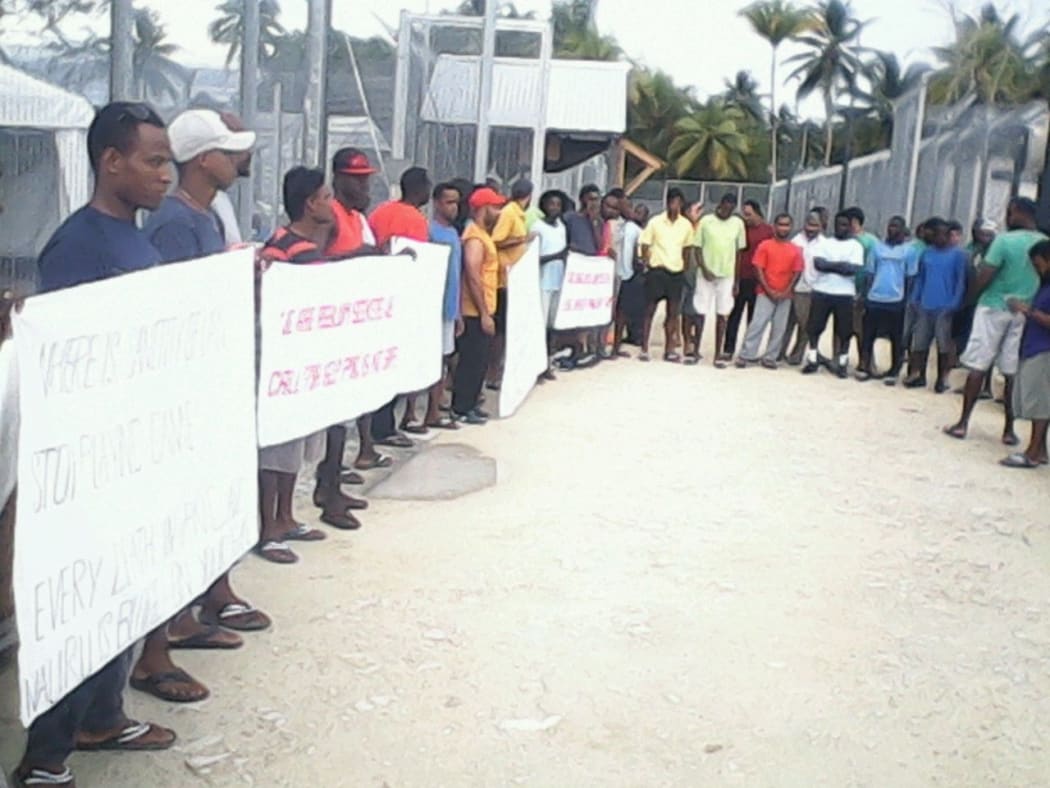
Protest by refugees and asylum seekers on Manus Island. Photo: Supplied
"Right now we have three rapists from Australia still on the run. They were flown out the next day after they raped a young girl who was working there, never brought back for justice. "
Mr Knight mentioned the case of the murder of Reza Berati, an Iranian asylum seeker who died at the Manus centre in 2014 in a brutal assault.
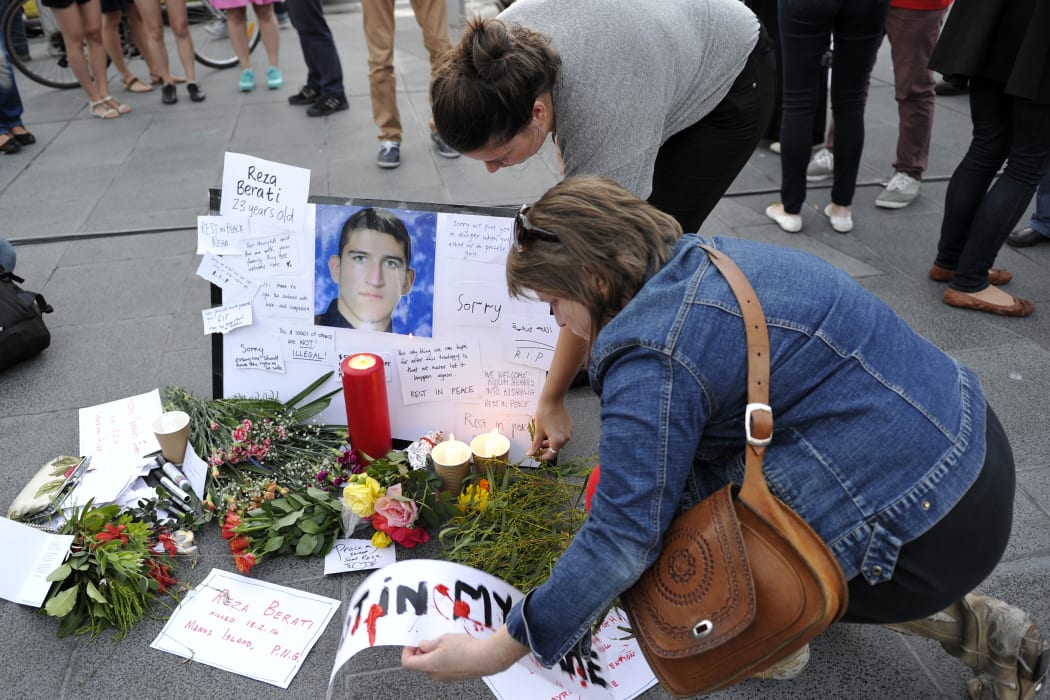
People places flowers and cards next to the portriat of Iranian asylum seeker Reza Berati during a candlelight vigil in support of asylum seekers, in Melbourne on February 23, 2014. Photo: AFP PHOTO / ESTHER LIM
"We have two of our young men serving prison time for his murder, when the last people seen kicking this guy in the head were a New Zealander and an Australian. And they were never questioned about it."
While Canberra funds and effectively controls the offshore centre's operations, it has consistently said that responsibility for Manus rests with PNG.
PNG's prime minister Peter O'Neill said the reason he originally signed on for the processing arrangement with Australia was to help a friend in need, as part of a regional solution.
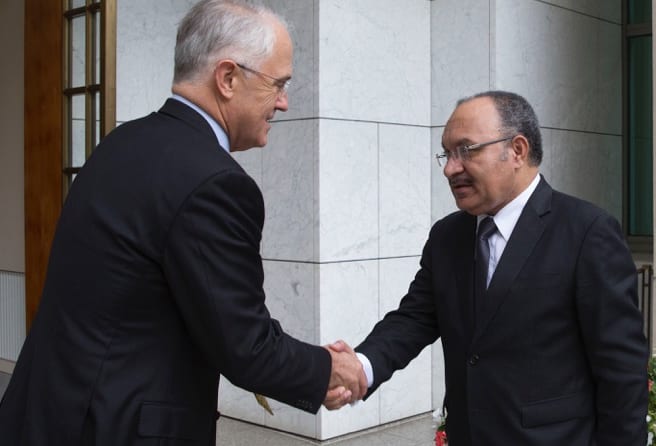
Australia's prime minister Malcolm Turnbull meets his Papua New Guinea counterpart Peter O'Neill in Canberra. Photo: Supplied
Out of the deal, he was able to leverage significantly more control of Australia's $US370 million aid programme in PNG.
However, it has long been apparent that resettlement of the refugees in PNG is not going to work and that the moral obligation to resettle the refugees largely rests elsewhere.
So as the end of the Manus offshore centre and its disastrous operations draws nearer, the ball is firmly in Australia's court.
